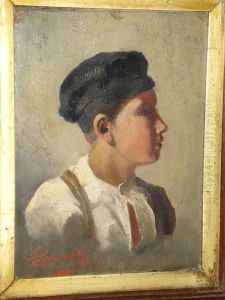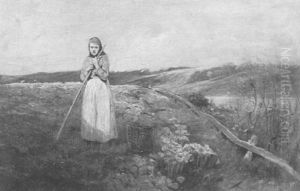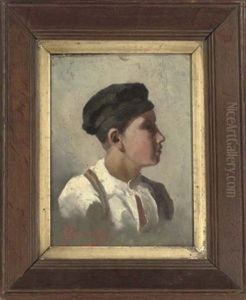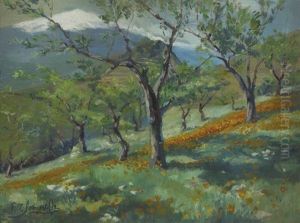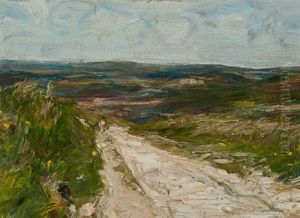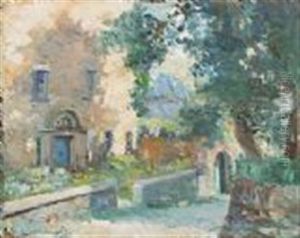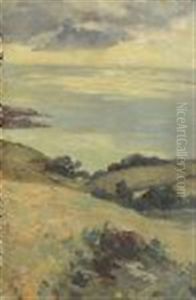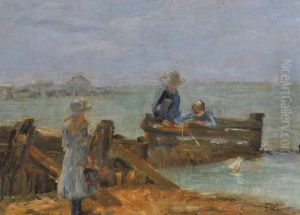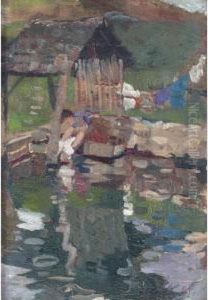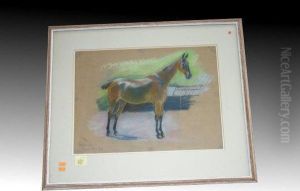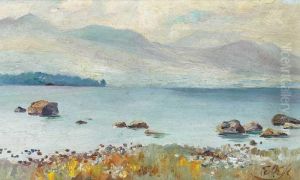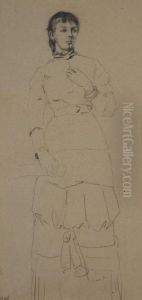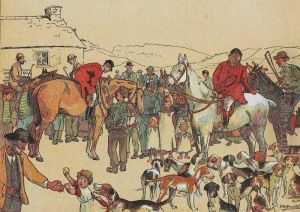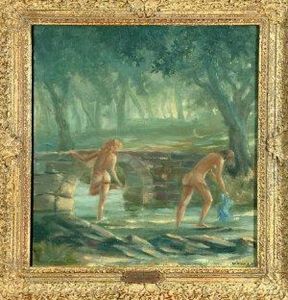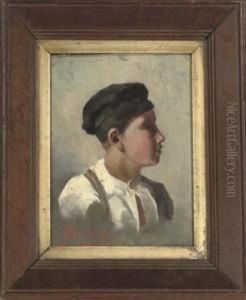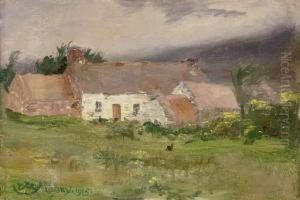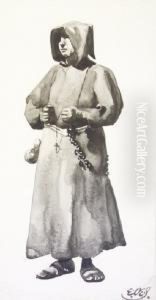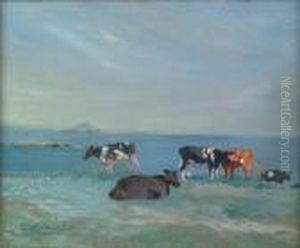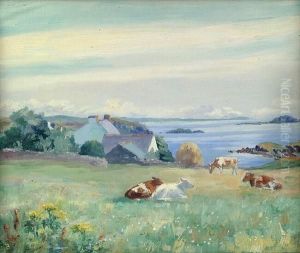Edith Oenone Somerville Paintings
Edith Oenone Somerville was an Irish novelist and artist, born on May 2, 1858, in Corfu, where her father was stationed as a British army officer. She grew up in County Cork, Ireland, in a Protestant Anglo-Irish family deeply embedded in the rural gentry. Somerville was educated at home and later attended Alexandra College in Dublin, where she developed her skills in art. She furthered her artistic education at the South Kensington School of Art in London. However, Somerville is best remembered for her partnership with her cousin Violet Martin (who wrote under the pseudonym Martin Ross), with whom she formed a life-long collaboration that significantly contributed to Irish literature.
Their partnership began in the late 1880s, and together they published a series of novels and short stories under the joint pseudonym 'Somerville and Ross'. Their works vividly depicted the social life of the Irish upper classes and the changing political landscape of Ireland at the turn of the 20th century. Among their most famous works is the Irish R.M. series, which humorously chronicles the adventures of an Englishman serving as a Resident Magistrate in the west of Ireland. These stories were beloved for their wit, vivid characterizations, and insightful observations of the Irish rural society of their time.
Edith Somerville was also an accomplished painter, and her artistic talents are evident in the vivid descriptions and vibrant narratives of their joint literary works. Despite the death of her cousin Violet in 1915, Somerville continued to write and publish under their joint name, claiming spiritual communication with Martin that allowed their collaboration to continue beyond death.
Somerville was an active suffragette, advocating for women's rights, and she was also involved in the Irish literary revival, although her views on Irish nationalism and her position within the Anglo-Irish community made her stance complex during the tumultuous times of Irish independence.
Edith Oenone Somerville died on October 8, 1949, in County Cork, leaving behind a legacy that has made a significant impact on Irish literature and the representation of Irish society during a period of great change. Her works remain a testament to the partnership that transcended personal loss and the divisions of their time to create a lasting literary heritage.
